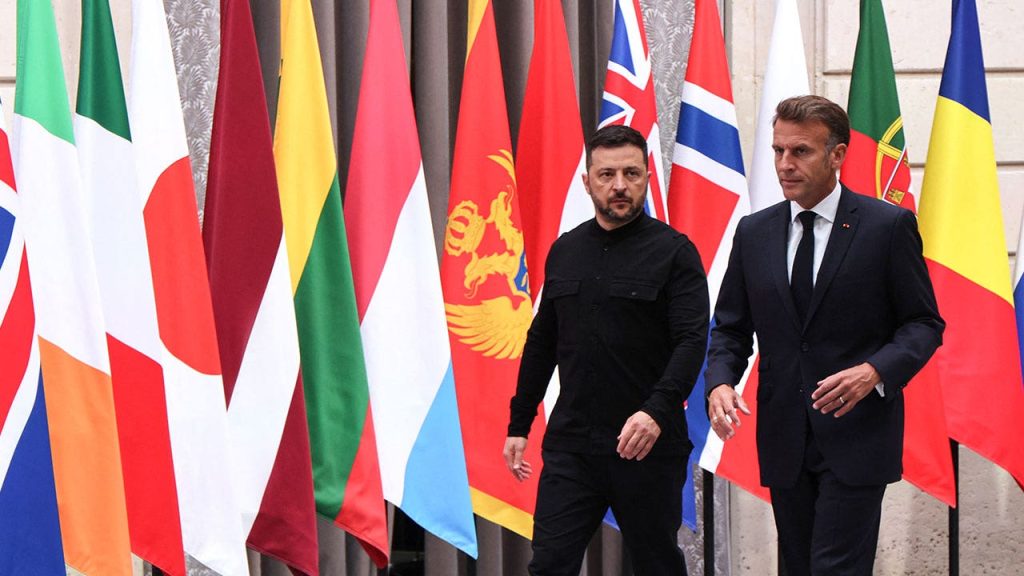Trump Urges European Leaders to Cut Russian Funding, Pressure China in Ukraine War Efforts
In a powerful call for stronger European action against Russia, President Donald Trump delivered a clear message to European leaders: stop funding Vladimir Putin’s war in Ukraine. Following a significant virtual meeting that brought together Trump, Ukrainian President Volodymyr Zelenskyy, and European leaders at the Coalition of the Willing summit in Paris, the President highlighted how Europe continues to finance Russia’s military operations through energy purchases. According to White House officials, Trump emphasized that “Europe must stop purchasing Russian oil that is funding the war,” pointing to the staggering €1.1 billion (approximately $1.3 billion) Russia received from the European Union in fuel sales over a one-year period. This call for action underscores the complex web of economic relationships that continue to sustain Russia’s war machine despite widespread condemnation of its invasion.
The President didn’t stop at criticizing European energy imports from Russia; he also called for greater pressure on China, which has emerged as a critical financial supporter of Russia’s war efforts. “European leaders must place economic pressure on China for funding Russia’s war efforts,” Trump stated, according to White House officials. This marks a significant escalation in rhetoric regarding China’s role in the ongoing conflict and reflects growing concerns about Beijing’s support for Moscow. The meeting itself was notable for the U.S. participation, as the White House pointed out that America under Trump has not been a formal member of the Coalition of the Willing, with French President Emmanuel Macron having specifically invited Trump to join the discussions. White House Special Envoy Steve Witkoff was also present at the Paris meeting and was seen warmly greeting Zelenskyy with both a handshake and a hug.
Despite Trump’s forceful tone regarding European actions, Macron characterized the Coalition meeting more optimistically, stating that it had “made real progress in Paris.” While specific details of agreements reached during the summit remain somewhat unclear, reports indicate that approximately 26 nations committed to deploying troops “by land, sea or air” to Ukraine immediately following any ceasefire agreement – a move that Putin has consistently and vehemently opposed. This potential deployment represents a significant escalation in Western support for Ukraine and demonstrates a growing resolve to counter Russian aggression with concrete military commitments. The timing of this summit is particularly noteworthy, coming just one day after Putin met with Chinese President Xi Jinping and North Korean leader Kim Jong Un in Beijing for a military parade commemorating the 80th anniversary of the end of World War II hostilities.
President Zelenskyy used social media to provide his perspective on the meeting, focusing on strategies to increase pressure on Putin to end the three-and-a-half-year war. “We talked about how to push the situation toward real peace,” Zelenskyy wrote on X. “We discussed different options, and the most important is pressure, using strong measures, particularly economic ones, to force an end to the war.” The Ukrainian leader emphasized that cutting off funding to Russia’s war machine is essential, stating, “The key to peace is depriving Russia’s war machine of money, depriving it of resources.” He also mentioned discussions about enhancing Ukraine’s air defenses against Russia’s relentless missile and drone attacks, though the White House did not confirm whether the U.S. has committed to additional support in this area. “Ukraine has proposed a format for protecting our skies for the U.S. to consider,” Zelenskyy noted, adding, “I thank President Trump for supporting our people. We agreed on further contacts.”
The Paris summit occurs amid complex diplomatic maneuvering, including Putin’s surprising invitation for Zelenskyy to meet him in Moscow. This invitation has been met with skepticism from Ukrainian and Western security officials, who view it as disingenuous, particularly given Trump’s recent pressure for the two leaders to meet. Trump has indicated he plans to speak with Putin in the coming days, adding another layer to the already intricate diplomatic situation. The support Putin continues to receive from China and North Korea further complicates the geopolitical landscape, as both nations have remained steadfast allies to Russia throughout the conflict, despite widespread international condemnation and sanctions from Western powers.
The growing international tensions surrounding Ukraine highlight the critical importance of economic leverage in modern warfare. As Europe grapples with its energy dependence on Russia and the United States pushes for stronger measures against both Russia and its supporters, the conflict increasingly represents not just a military struggle but an economic one. Trump’s direct challenge to European leaders reflects the frustration many feel about the continued flow of funds to Russia despite sanctions and public condemnation. The question remains whether Europe can successfully transition away from Russian energy and whether sufficient economic pressure can be brought to bear on China to influence its support for Putin’s war efforts. As Trump prepares for discussions with Putin and the international community continues seeking pathways to peace, the economic dimensions of this conflict may ultimately prove as decisive as the military ones in determining its outcome.


